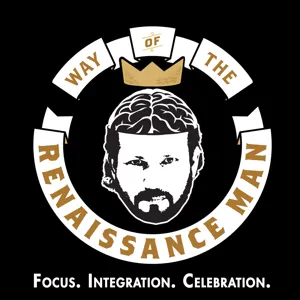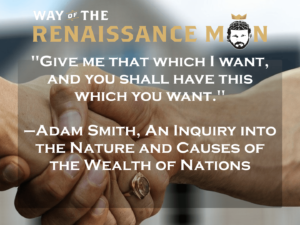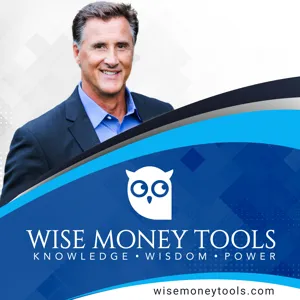Podcast Summary
Revolutionizing Finance with Diversification and Risk Management: Nobel Prize-winning economist Harry Markowitz introduced a rigorous, mathematical approach to investing, emphasizing the importance of diversification and risk management to minimize risk and maximize returns.
Harry Markowitz, a Nobel Prize-winning economist, revolutionized finance by emphasizing the importance of diversification and risk management, rather than just maximizing expected returns. Before Markowitz, investing was seen as a more casual, intuitive process, with individuals making decisions based on personal preferences and conventional wisdom. However, Markowitz introduced a more rigorous, mathematical approach, emphasizing the benefits of spreading investments across various assets to minimize risk. His findings, which are now standard in personal finance and investing, have fundamentally changed the way we approach investing and understand modern finance.
Harry Markowitz and the Mathematics of Diversification: Markowitz's work on diversification revolutionized finance by mathematically proving its effectiveness, leading to optimization strategies and the Capital Asset Pricing Model (CAPM).
Diversification in investing, which means spreading your money across various assets to reduce risk, was a concept that made sense intuitively, but Harry Markowitz was the first to mathematically model and prove its effectiveness. By expanding the number of investments, an individual can potentially achieve higher returns with lower risk. Markowitz's work laid the foundation for optimization strategies and the Capital Asset Pricing Model (CAPM), which is still widely used today in finance to determine a stock's worth based on factors like the prevailing interest rate and the S&P 500 return. William Sharpe, one of Markowitz's collaborators, built on this foundation and came up with the Sharp Ratio, a measure of risk-adjusted return. Markowitz was an influential figure in finance, and his work redefined the field by introducing a more quantitative approach. Despite his significant contributions, Markowitz remains an intriguing and underappreciated figure in the history of finance.
Markowitz's open-minded approach to finance: Markowitz's groundbreaking work in finance emphasized rigorous analysis and evaluation, but critics argue that his focus on volatility as a measure of risk may have overlooked other types of risks.
Harry Markowitz, a pioneer in modern finance, was known for his open-minded, irreverent, and rigorous approach to evaluating financial ideas. He trusted his intellect to assess ideas based on their merits, regardless of the source or traditional hierarchies. However, some criticisms of Markowitz's work suggest that his focus on volatility as a measure of risk may have overlooked other types of risks, such as the unexpected events that could significantly impact an investment's performance. Additionally, some investors argue that risk and return are just two dimensions of evaluating assets, and there are many other factors that should be considered. Despite these criticisms, Markowitz's contributions to finance remain significant, and his emphasis on rigorous analysis and evaluation continues to influence the field.
Modern Portfolio Theory and the Shift from Active to Passive Investing: Modern Portfolio Theory set the standard for both active and passive investing, but the consistency of outperforming through active management is a challenge. Passive investing in index funds has become a popular alternative, leading to increased accessibility and democratization of investing.
Markowitz's framework for modern portfolio theory set the standard for both active and passive investing. While some investors may be able to outperform through active management, the bar is set high, and consistency is a challenge. Markowitz introduced the idea that for every winning active manager, there is a losing one. With the growth of the passive investing industry, the average individual investor is often advised to simply invest in an index fund, rather than trying to pick individual stocks. This departure from the pre-Markowitz era of relying on the richest person in town for investment advice has led to increased accessibility and democratization of investing. However, some critics of passive investing romanticize the "good old days" of stock picking, but it's important to remember that those times were often beneficial for the wealthy few, rather than the average investor.
Uncertainty in Economic Forecasts: Despite reputable sources, economic forecasts can be ambiguous, leaving individuals and businesses uncertain. Transparent and accurate measurement is crucial in economic indicators, as shown by the impact of Beyonce ticket prices on inflation data.
Economic forecasts, even from reputable sources like the Federal Reserve, can be uncertain and unhelpful. During a recent meeting, the Fed's staff forecasted a mild recession later this year, but the possibility of avoiding a recession was almost as likely. This ambiguity leaves individuals and businesses unsure of what to do. Meanwhile, in the world of entertainment, the price of Beyonce tickets has influenced inflation data in both Sweden and the UK, highlighting the need for transparency and accurate measurement in economic indicators. Despite the potential for a Nobel Prize-winning discovery in this area, no statistician has stepped up to the challenge. Overall, the uncertainty in economic forecasting and the need for clear data highlight the importance of staying informed and adaptable in today's complex economic landscape.



 "Give me that which I want, and you shall have this which you want."
"Give me that which I want, and you shall have this which you want."


